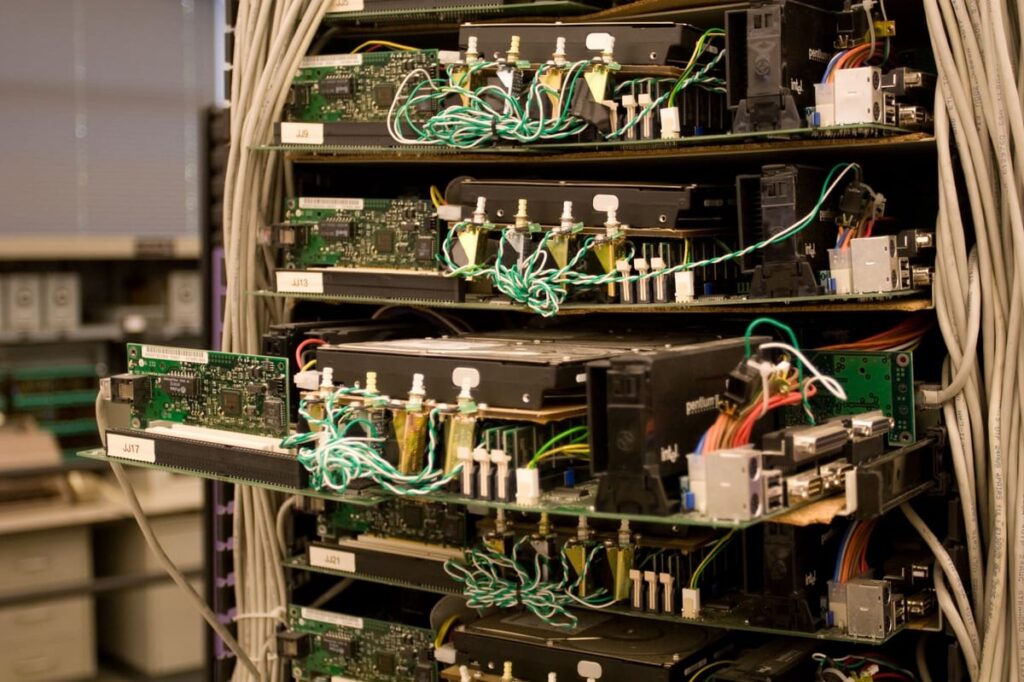By 2050, it is predicted that 68% of people on Earth will reside in urban areas, up from the current 55%. This will create enormous challenges like more traffic, trash, and energy consumption. But it also presents opportunities for innovative solutions.
Cities are getting “smart” by employing technology to enhance daily life. At the heart of this revolution is cloud computing.
Cloud computing works like a smart link that connects city services, people and devices. It keeps and processes enormous amounts of traffic light data, camera data, weather sensor data, and so on.
A report states that there will be more than 100 zettabytes of data in the cloud at the end of this year. That is an enormous figure.
City officials and technology professionals make improved and quicker decisions using the data.
This post describes six important ways cloud services are enabling cities to be smarter, safer, and more convenient.
1. Real-Time Traffic Management Is Smarter
Congested roads, lengthy commutes, and traffic congestion are an everyday battle for city residents. Cloud computing is ending it. Intelligent traffic systems gather information from road sensors, GPS, and traffic cameras. That information is sent to the cloud. From there, it is processed rapidly.
Using cloud services, traffic lights are adjusted based on actual traffic. Emergency vehicles such as ambulances receive automatic green lights. Bus arrival times are reset with no waiting when there is a roadblock.
Cloud Alerts Make Commuting Easier
Cloud applications also provide real-time traffic updates to the phones of people. When there is an accident or roadblock, the drivers and riders receive immediate updates. This saves time to travel and reduces pollution as well.
2. Cloud-Based Energy Systems Minimize Waste
Smart cities aim to utilize energy as efficiently as possible. Through cloud computing, energy systems can monitor how much power buildings and homes consume. This data enables the city to distribute power where it is most needed.
Cloud-based platforms also minimize the waste of solar and wind power. They collect data from each source of energy and ensure that nothing is wasted.
- Streetlights soften at late-night hours.
- Offices reduce their energy consumption post-working hours.
- Public spaces are powered by foot traffic information.
3. Public Safety Is Stronger With Cloud Support
City safety is always the top priority. Cloud services help smart cities by enabling rapid response from rescue teams, police, and fire departments. Drones, cameras, and sensors all send real-time data to the cloud. That information ensures teams can move quickly during fires, crimes, or floods.
Smart Alerts Help During Disasters
In an emergency, cloud systems allow for quick alerts. When there is a fire or flood alert, people are notified by phone. This helps them to swiftly and safely leave dangerous areas. The cloud keeps everyone in touch.
4. Smart Waste Management Keeps Cities Clean
Garbage accumulation is a major problem in expanding cities. Smart cities implement cloud computing to handle waste more effectively. Smart sensors have been added to bins, and when they are full, they send signals to the cloud.
Applications on the cloud tell garbage trucks to only pick up full bins. This conserves fuel, time, and labor. Moreover, it keeps overflowing bins from causing health problems as well.
- Bins notify the system when they are full.
- Trucks take the shortest path.
- Cleaner streets and fewer emissions.
5. Water Supply Systems Are More Efficient
Water is a precious resource. Smart cities use cloud services to monitor water consumption in buildings, homes, and factories. If there is overuse or leakage, an alert is sent.
- Keeping an eye on tank and dam water levels.
- Notify teams in case of a decrease in water pressure.
- Give water-saving advice to the locals.
All of this information helps city workers minimize water loss and quickly fix problems. Even in dry months, cloud-based water networks keep the supply steady.
6. Cities Become Smarter with Cloud-Based Planning Tools
Cities are dynamic places that change rapidly. New buildings, roads, and parks are built daily. Intelligent planning is essential to ensure that these changes benefit everyone. To test ideas before they are developed, city planners can use cloud computing to access 3D maps and simulations.
- Evaluate how a new bridge would affect traffic.
- Estimate where new schools or hospitals will be needed.
- Observe how people are moving throughout the day.
All this information is stored in cloud services and can easily be shared with teams. This allows city building to become faster, smarter, and safer.
Final Thoughts
Smart cities are no longer an aspiration but a reality, made possible by the strength of cloud computing. As a result, cities are changing from waste and traffic management to energy and water conservation. It brings people and systems together in ways that have never been seen before.
The best news? This is only the start. As cloud services continue to expand, even more cities will become smart. Life in these cities will be easier, safer, and cleaner. Cloud-enabled towns are not only innovative but also designed for the future.
Let’s watch for what comes next. The smartest cities continue to learn, expand, and utilize tech that benefits people.



